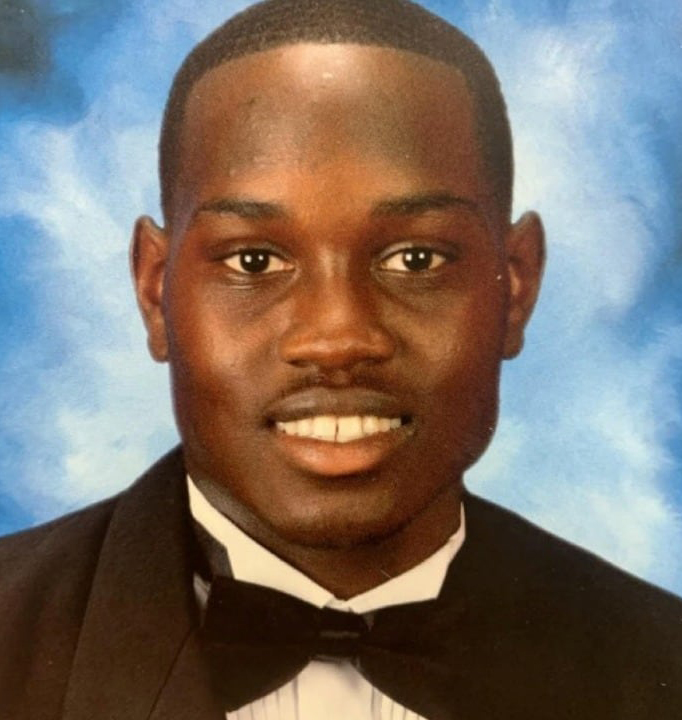BRUNSWICK, Ga., (Reuters) – The three white men convicted of chasing down and murdering a young Black man, Ahmaud Arbery, as he was out jogging in their suburban Georgia community, were found guilty yesterday of committing federal hate crimes and other offenses in the 2020 killing.
A predominantly white jury deliberated for about four hours over two days before returning the verdict against Travis McMichael, 36, his father, former police officer Gregory McMichael, 66, and a neighbor, William “Roddie” Bryan, 52, in U.S. District Court in Brunswick, Georgia.
“Ahmaud will continue to rest in peace but he will now begin to rest in power,” Wanda Cooper-Jones, Ahmaud’s mother, said outside the courthouse after the verdict was read.
All three men were found guilty of violating Arbery’s civil rights by attacking him because of his race, and of attempted kidnapping, capping the latest high-profile trial to probe issues of vigilantism and racial violence in America.
The McMichaels were also convicted of a federal firearms charge. Bryan was not charged with a weapons offense. The hate-crimes felony, the most serious of the charges the defendants faced, carries a maximum penalty of life in prison. The judge has not yet set a sentencing date.
The three men were convicted last year of murder and other crimes in state court and sentenced to life terms for the shotgun slaying of Arbery, 25, a onetime high school football star who worked for a truck-washing company and his father’s landscaping business.
Prosecutors in the state trial avoided characterizing the killing as racist, seeking only to prove that the McMichaels and Bryan were responsible for his death.
Cooper-Jones on Tuesday railed against the Department of Justice (DOJ) prosecutors, who had originally reached a plea deal with the defendants to avoid a trial, as typically happens in hate-crimes cases, such as with Derek Chauvin, the police officer who kneeled on George Floyd’s neck and was found guilty of murdering him.
In a rare move, the judge last month rejected the plea deal after Ahmaud’s family implored her not to accept it.
“What we got today, we wouldn’t have gotten today if it wasn’t for the fight that the family put up,” Cooper-Jones said. “What the DOJ did today, they was made to do today. It wasn’t because it’s what they wanted to do.”
The family and supporters plan to hold a vigil on Wednesday in the neighborhood where Arbery was killed to mark the second anniversary of his murder.
Arbery was shot to death on Feb. 23, 2020, by the younger McMichael after all three defendants had chased him down in pickup trucks as the victim was out for an afternoon jog through the community of Satilla Shores, near the southeastern coastal town of Brunswick.
The McMichaels insisted they did not act out of racial animus but out of self-defense and a belief that Arbery appeared suspicious when they saw him running through the streets after a series of neighborhood break-ins.
But trial testimony revealed there had been no burglaries. Federal prosecutors presented testimony from 20 witnesses and other evidence they said showed that the three men had long histories of using slurs and making racist statements. The defense rested its case after calling just one witness.
There was never any dispute that the younger McMichael fired his shotgun three times at Arbery at close range.
The killing was captured in a graphic cellphone video recorded by Bryan, stoking public outrage when it surfaced on social media more than two months later with no arrests yet made, even though Travis McMichael had admitted to police at the scene that he gunned down Arbery.
Civil rights activists pointed to the lag time in arrests of the three men as the latest example of law enforcement allowing white perpetrators to go unpunished in the unjustified killing of Black people.
Arbery’s name became entwined with a host of others invoked in a summer of protests against racial injustice across the United States after Floyd, another unarmed Black man, was killed in May 2020. The federal prosecution of Arbery’s killers is the first in which those who committed such a high-profile murder are facing a jury in a hate-crime trial.
In response to Arbery’s murder, lawmakers in Georgia passed a law in 2020 that hiked punishments for hate crimes and mandated data collection on hate crimes. A year later, lawmakers overhauled a Civil War-era citizens arrest law in an effort to prevent vigilantism.










